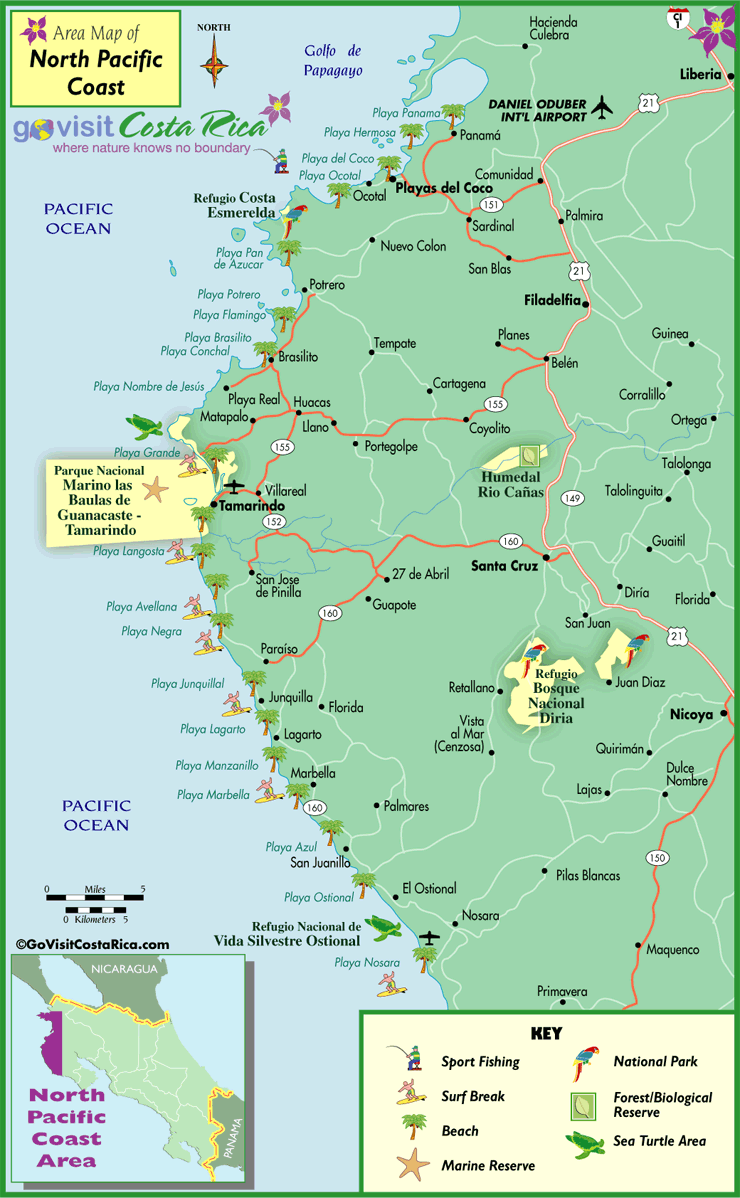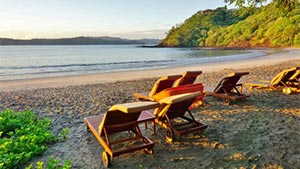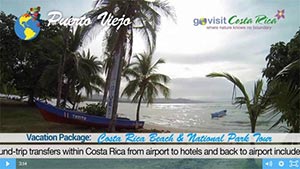Palo Verde National Park, Guanacaste
Located along the banks of the Tempisque River, the Palo Verde National Park is one of the best places in Costa Rica to view native wildlife.
In particular, the national park is top notch for bird watching as the lowlands of the river make for ideal wetlands for a variety of aquatic birds.
This remote sanctuary spans more than 45,492 acres of land that includes lagoons, mangroves, limestone, grassland and forests.
Additionally, Palo Verde protects one of the last remaining deciduous dry forests of the Neotropics.
Birdwatching
The Palo Verde National Park is home to one of Central America's most densely populated areas of migratory birds and aquatic species.
It is along the most important site for migratory birds in the Mesoamerican Pacific.
Any avid birdwatchers will love traveling to this park.
During the rainy season, at least 250,000 birds reside here. However, this is not the best time to visit the park because it can be difficult to get around and view the area's wildlife.
The dry season, which is between January and April, allows for much better visibility of birds and other wildlife because there is little vegetation to obstruct views.
Dry Forest
The tropical dry forest that once spanned a large part of the Central American Pacific coastline now has few remnants.
Over the past few centuries, the forest has been destroyed by man, which is why the Palo Verde protects the last significant region. This area is considered the dry forest because throughout roughly half of the year, there is little to no precipitation at all. The bushes and trees of the region lose their leaves to conserve water during this time, but beforehand, the leaves are brightly hued.
Once it begins to rain again, around April, the forest blooms and tens of thousands of birds make their way to the park. No matter what time of the year you plan to visit here, you'll likely be able to see avian species such as the scarlet macaw, turquoise-browed motmot, three-wattled bellbird, green heron and more.
During the dry season, many of these birds tend to congregate around the remaining available water sources, so it may be a good idea to stake out a place near a pond or part of the river in order to get the best views of the birds.
In addition to the substantial number of bird species, visitors to Palo Verde National Park will also see their fair share of animals, including some of Costa Rica's treasured mammals like the howler and capuchin monkeys. White-nosed coatis and white-tailed deer can also be found within the park's grounds.
Throughout the park, visitors will find a few hiking trails and scenic overlooks to view the diverse flora and fauna here.
Unique Ways to see the Park
Bike the Park
One of the best ways to view the impressive wildlife located at the national park is by bicycle. Travelers are encouraged to rent mountain bikes from the Organization for Tropical Studies station in order to explore some of the less-viewed parts of the park. Due to the changing landscape and marshes in the park, it may be necessary to walk one's bike for some parts of the journey.
Boat up Rio Tempisque
Another unique way to enter Palo Verde National Park is by hiring a boat at the dock in the town of Puerto Humo, located on the Nicoya side of the Rio Tempisque.
Travelers should ask their guide to take them by the Pajaros Island for an up-close look at the birds.
Map of the Area

Getting to Palo Verde National Park
You can reach Palo Verde National Park with or without a vehicle.
Travelers who have access to a car will want to leave from downtown San Jose and take the Inter-American Highway north, heading toward Bagaces.
From there, it will be about 28 kilometers along a rock road through sugar cane and rice fields.
After passing the entrance, continue another 8 kilometers until reaching the biological station. Travelers can also take a bus from Nicoya to Rosario, getting off at Puerto Humo to get to the park.













.jpg)





